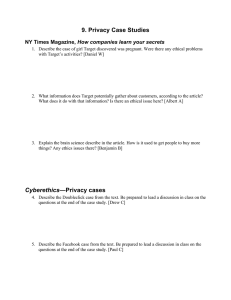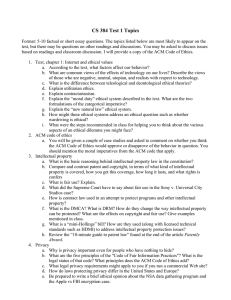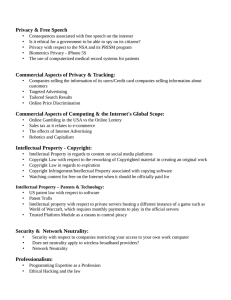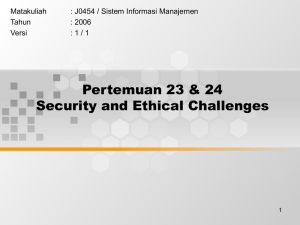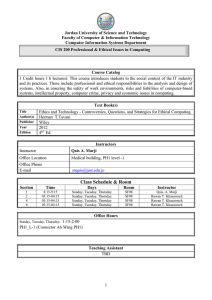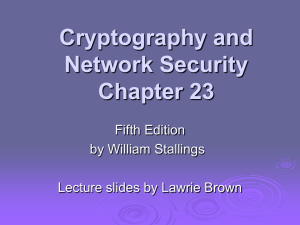COMPSCI 230: Ethical Issues in Computing Course Coordinator: James Buffenbarger
advertisement
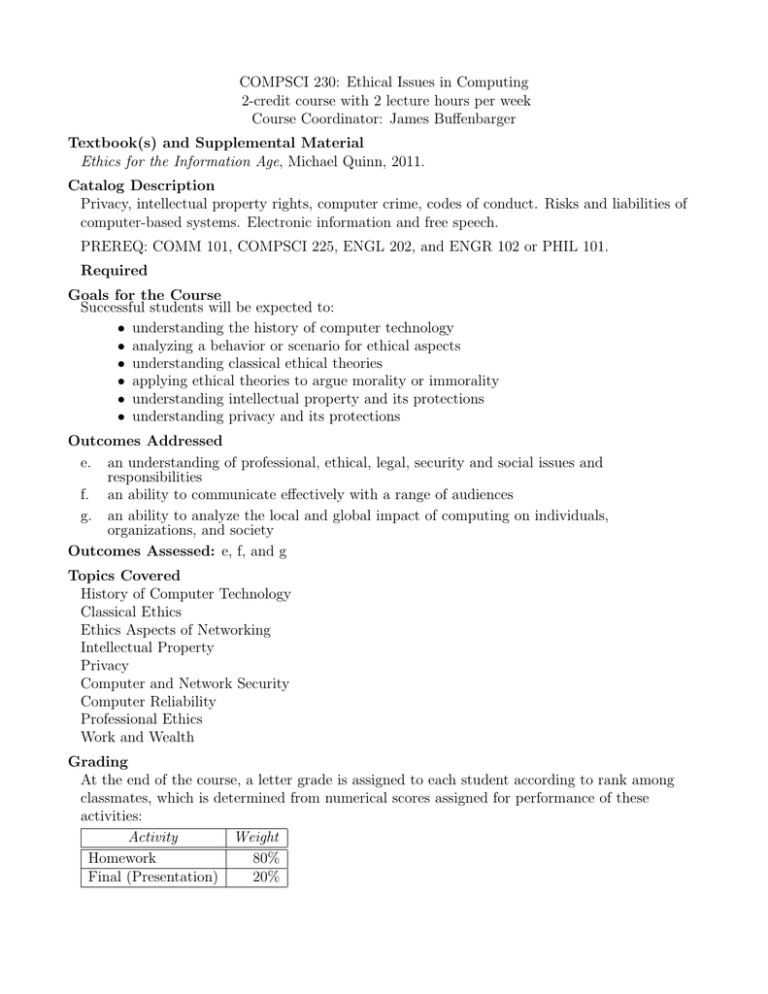
COMPSCI 230: Ethical Issues in Computing 2-credit course with 2 lecture hours per week Course Coordinator: James Buffenbarger Textbook(s) and Supplemental Material Ethics for the Information Age, Michael Quinn, 2011. Catalog Description Privacy, intellectual property rights, computer crime, codes of conduct. Risks and liabilities of computer-based systems. Electronic information and free speech. PREREQ: COMM 101, COMPSCI 225, ENGL 202, and ENGR 102 or PHIL 101. Required Goals for the Course Successful students will be expected to: • understanding the history of computer technology • analyzing a behavior or scenario for ethical aspects • understanding classical ethical theories • applying ethical theories to argue morality or immorality • understanding intellectual property and its protections • understanding privacy and its protections Outcomes Addressed e. an understanding of professional, ethical, legal, security and social issues and responsibilities f. an ability to communicate effectively with a range of audiences g. an ability to analyze the local and global impact of computing on individuals, organizations, and society Outcomes Assessed: e, f, and g Topics Covered History of Computer Technology Classical Ethics Ethics Aspects of Networking Intellectual Property Privacy Computer and Network Security Computer Reliability Professional Ethics Work and Wealth Grading At the end of the course, a letter grade is assigned to each student according to rank among classmates, which is determined from numerical scores assigned for performance of these activities: Activity Weight Homework 80% Final (Presentation) 20% Curriculum Category Content (Credits) Area Core Advanced Algorithms Software Design Computer Architecture Data Structures Programming Languages Other 2




